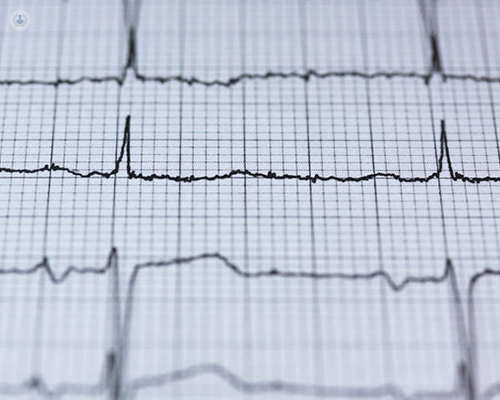Graves' disease
Mr Sudeendra Doddi - Surgery
Created on: 02-26-2019
Updated on: 06-29-2023
Edited by: Conor Dunworth
What is Graves’ disease?
Graves’ disease is an autoimmune disease which causes the thyroid gland to become overactive. Graves’ disease is the leading cause of an overactive thyroid, which affects 2% of women and 0.2% of men in the UK .

What are the symptoms of Graves’ disease?
The most common symptoms of Graves’ disease include:
- Shaky hands
- Fast heartbeat
- Heat sensitivity
- Goitre – a visibly enlarged thyroid
- Unexplained loss in weight
- Increased appetite
- Changes in menstrual cycles
- Erectile dysfunction and loss of libido
Graves’ disease can also affect your mood in a number of ways, including:
- Increased feelings of anxiety
- Feeling jittery and nervous
- Irritability
How can Graves’ disease affect the affect the body?
As well as experiencing typical symptoms, some patients with Graves’ disease may develop related conditions such as:
- Thyroid eye disease – this affects 30% of people with Graves’ disease and can involve double vision, bulging eyes, pressure or pain in and around the eyes, and sensitivity to light
- Graves' dermopathy (pretibial myxedema) – this involves the thickening or reddening of the skin on your shins or feet
Is Graves’ disease serious?
Although it is rarely life-threatening, Graves’ disease can sometimes result in complications if left unmanaged. Untreated Graves’ disease may lead to:
- Problems during pregnancy – such as miscarriage, preeclampsia, or preterm birth
- Heart problems – such as heart rhythm disorders or heart failure
What causes Graves’ disease?
An autoimmune disorder is when your body mistakes healthy cells for harmful cells and attacks them. In the case of Graves’ disease, the body’s immune system produces antibodies which in turn cause the thyroid gland to grow and become overactive.
It is not well-understood why autoimmune disorders occur. In Graves’ disease there appears to be a genetic component, with Graves’ disease tending to run in families.
What can trigger the onset of Graves’ disease?
For people with a genetic disposition to Graves’ disease or other autoimmune conditions, stressful events or illness can trigger the onset of the condition. Pregnancy and recent childbirth can also be related to the onset of symptoms of Graves’ disease.

How is Graves' disease diagnosed?
At first the doctor will ask you about your symptoms and medical history. They may conduct a physical exam to check for any signs of Graves’ eye disease, an enlarged thyroid gland, or a tremor.
They will then take a blood sample to test for any increase in T4, a hormone produced by the thyroid gland. This is converted in the peripheries to T3, and the hormone TSH is suppressed.
This is normally enough to make a diagnosis of Graves’ disease, but in some cases you might need imaging tests, such as a CT scan or MRI of your neck.
How is Graves' disease treated?
The main treatment for Graves’ disease is medication.
If you have severe symptoms of Graves’ disease when diagnosed, you might be offered beta blockers in the short term to counter the effects of an overactive thyroid gland.
In the longer term, your doctor will prescribe medication which inhibits your thyroid gland’s production of hormones. Initially you will be given a high dosage of medication, and this will be reduced periodically if symptoms have been brought under control. The aim is to gradually return your thyroid’s function to normal, and move off medication in the long term.
There are a number of drugs available to counter the thyroid gland. Each has different side effects and risks and it is important to discuss these with your doctor.
If medication fails to restore normal thyroid function, your doctor may recommend more invasive treatments to reduce the size of the thyroid gland, including:
- Radioactive iodine therapy – this involves taking iodine orally. The radioactivity of the iodine destroys some of the cells in your thyroid. Initially, radioactive iodine therapy can worsen some of the symptoms of Graves’ disease, but these are generally temporary. It is not recommended if you are breastfeeding or might be pregnant.
- Surgery – surgery involves removing part or all of your thyroid gland. After surgery you may need hormone replacement medication to bring your thyroid hormone levels to normal. There are a number of possible complications associated with thyroid surgery so it is only recommended when other treatment approaches have failed.
What type of doctor treats Graves’ disease?
Specialist endocrinologists treat Graves’ disease as the condition is linked to hormone function. Patients who go on to develop complications related to the eye, such as thyroid eye disease, may also be referred to an ophthalmologist.











